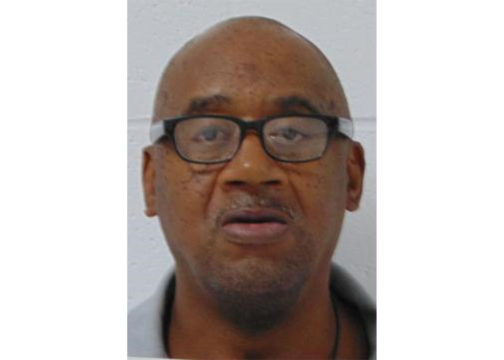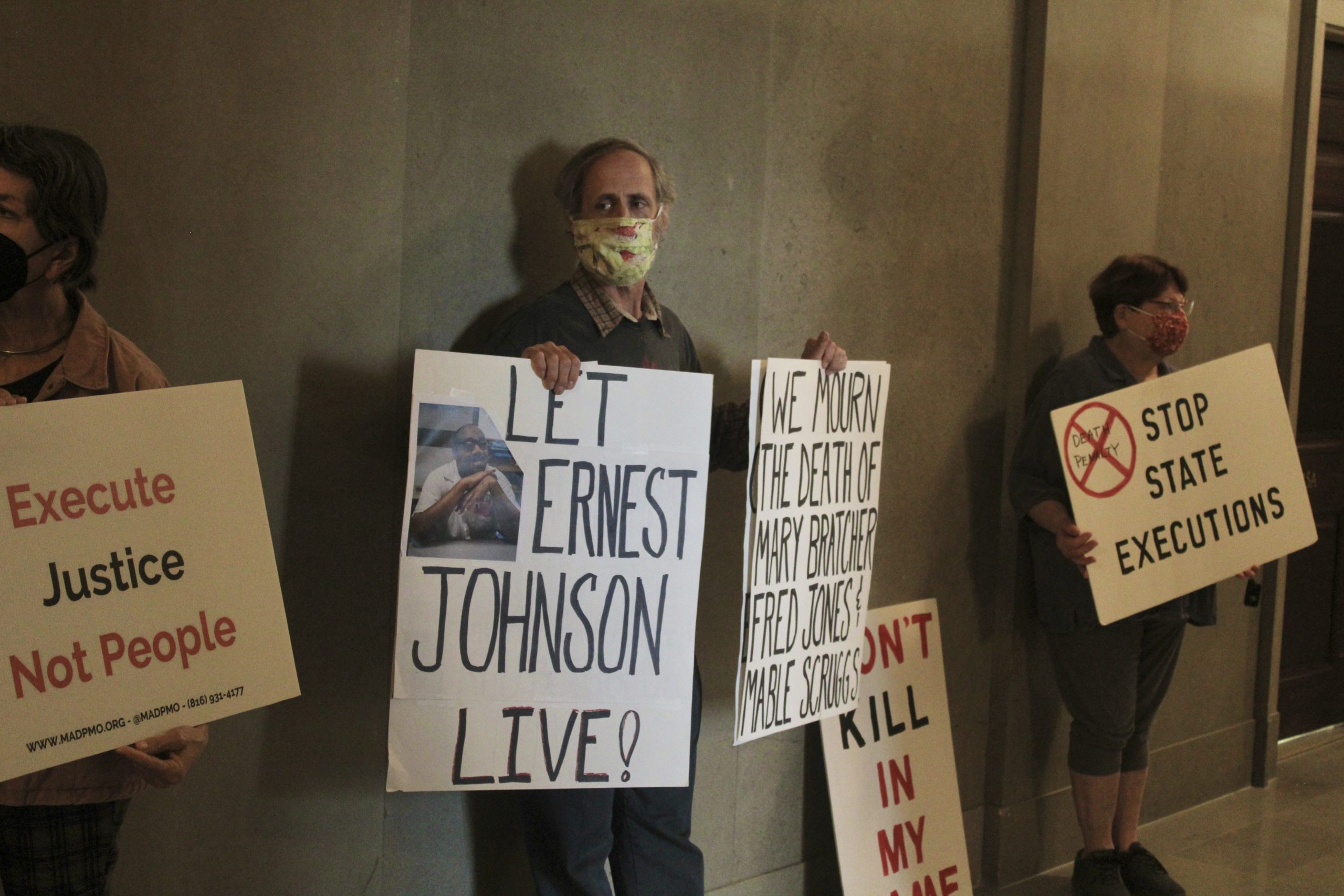Advocacy groups, retired judges, and lawmakers are urging the state to halt the execution of Ernest Lee Johnson, who is scheduled to be put to death Tuesday evening.
About one dozen demonstrators gathered outside Gov. Mike Parson’s office in the Capitol to oppose Johnson’s execution Tuesday. Missourians for Alternatives to the Death Penalty (MADP) Executive Director Elyse Max, who delivered more than 20,000 petitions seeking clemency for Johnson last week, said the effort had received widespread support.
“People are showing up across Missouri to support Ernest,” Max told The Missouri Times. “The eyes of the nation are transfixed on Missouri right now, and we hope to see the U.S. Supreme Court overturn the death penalty.”
MADP is holding other demonstrations throughout Missouri Tuesday, with Congresswoman Cori Bush joining the group in St. Louis. Other demonstrations will be held in Kansas City and Columbia throughout the afternoon, and the group will host a vigil at the Bonne Terre Diagnostic and Correctional Center, where the execution is set to take place.
Johnson, convicted of killing three people during a convenience store robbery in 1994, had about one-fifth of his brain tissue removed in 2008 to treat a brain tumor. The tumor was not fully removed, and he suffers from epilepsy and “painful seizures,” his attorneys have said.

Four retired Missouri judges filed a brief before the U.S. Supreme Court Tuesday seeking a stay in Johnson’s execution based on his attorneys’ claims he is intellectually disabled.
“Although the right to trial by jury is always fundamental, the right carries special importance for criminal defendants who raise legitimate claims of intellectual disability because executing an intellectually disabled offender also violates the Eighth Amendment’s prohibition of cruel and unusual punishment,” the brief said. “Given the highly contested nature of his intellectual disability claim, a stay of execution is warranted.”
Jon Gray, retired judge from the 16th Circuit; Gary Oxenhandler, retired judge from the 13th Circuit; Lisa Van Amburg, retired judge from the Eastern District Court of Appeals; and Michael Wolff, retired judge from the Missouri Supreme Court, signed onto the brief.
The U.S. Supreme Court refused to grant the stay Tuesday afternoon, with no justices indicating dissent.
Members of Congress also weighed in in support of a stay for Johnson: Congressman Emanuel Cleaver said the “state-sanctioned execution of the intellectually disabled is both morally reprehensible and egregiously unconstitutional” and joined Bush on a letter pleading with Parson to halt the execution.
In August, the Missouri Supreme Court said Johnson was eligible for the death penalty and denied his request to be executed by firing squad.
Pope Francis implored the governor to halt the execution through a diplomatic representative last week, as did former Gov. Bob Holden.
Despite the broad push, Parson said Monday the state would proceed with Johnson’s execution.
“The state is prepared to deliver justice and carry out the lawful sentence Mr. Johnson received in accordance with the Missouri Supreme Court’s order,” Parson said in a statement.
Parson said his office was working through an extensive backlog of clemency petitions, with 2,376 petitions pending as of Thursday.
There are 20 capital punishment offenders within the Missouri Department of Corrections custody. The last person executed in Missouri was Walter Barton in May 2020 — the first in the U.S. amid the COVID-19 pandemic.
Johnson’s execution is scheduled for 6 p.m.
This story has been updated with the U.S. Supreme Court’s decision.

Cameron Gerber studied journalism at Lincoln University. Prior to Lincoln, he earned an associate’s degree from State Fair Community College. Cameron is a native of Eldon, Missouri.
Contact Cameron at cameron@themissouritimes.com.













































